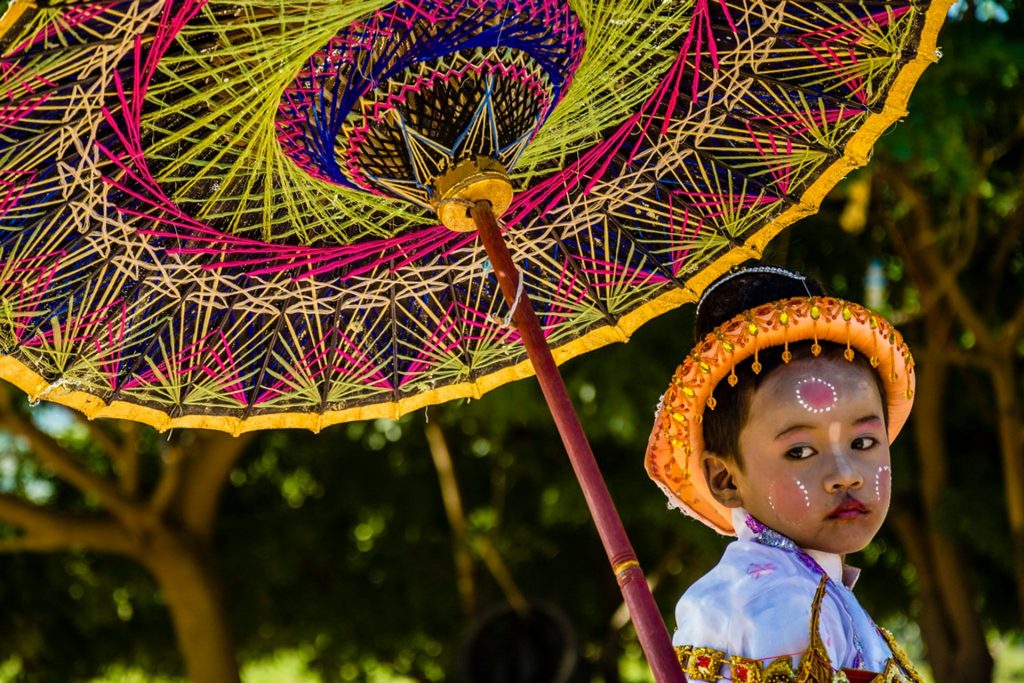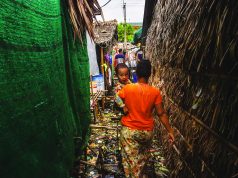Zu Zu put her hands up in despair yet again. She has not been able to understand, for the last couple of years, how to react to her teenaged daughter’s behavior. She doesn’t seem to relate to her other children any more, and while, in public, she feels proud that they speak well and conduct themselves appropriately, and have become smart and confident, their conduct at home, seems less warm, and are always finding fault with her, the way they live and what they do not have. She is just one of many parents feeling this way.
Sounds familiar? Yes, this is one of the outcomes of rapid changes in society, when external international influences impact traditional beliefs and practices. The contrasts become stark, with foreign ones holding more appeal, and domestic patterns and ways of living appear archaic and unappealing, especially to the younger population. Parents, however wish to cling to their system of values and ideals, balance the western and Asian influences, limit the penetration of practices that clash with their religious and personal beliefs, and keep their children rooted in the local systems.
As economies get globalized, multinationals and international organizations bring with them, modern influences on education, living styles, social interactions and have a deep impact on society, particularly the vulnerable youth, that is hungry for change. Global connectivity and access to the worldwide web gives a virtual view of life and liberal practices, often very different from Asian norms, and seem so easy to emulate.
The mushrooming of numerous international schools in big cities and an inadequate local education system has pushed parents to send their children to these elite institutions with the hope of providing the best education to their offspring.
The academic learning apart, international education encourages independent behavior, makes children responsible for their tasks, and encourages forming opinions and inculcating the ability to discuss. This is somewhat in contrast to traditional Asian values, where children must listen and obey rather than argue, especially with elders, where family hierarchy is respected more than equal standing for all. The result is conflict and resentment that tend to build between generations. Parents are not able to enforce rules they previously did, children become secretive since they find parents non accepting, and literally lead dual lives, one in school with friends where they have many commonalities, and one at home that they wish to break free from, eventually.
Many well-travelled parents themselves exposed to western ways, are more accepting and give children sufficient leeway, while many more try to enforce discipline in the traditional manner, that causes distress and some children end up with psychological problems. Neither side is wrong, one generation wishes to practice age-old ways of socialization of their offspring, and the other that prefers the more appealing western contemporary attitudes and perspectives.
Conspicuous changes in youth
An individualistic mind set, and being self-absorbed, wanting to make their own choices and take decisions, shake off parental control, and being less thrifty than the previous generation. The family unit is also changing especially in urban areas, joint extended families are being replaced by nuclear ones, the role of grandparents is reducing, but family bonds remain strong. The youth remain respectful with just less time to devote at home, since gadgets and devices keep them hooked to online games and social media. Some of the new trends being observed include:
- Greater use of the English language
- Discarding traditional attire
- No longer have tanakha smeared faces
- Hanging out in trendy shopping malls
- Cafes have replaced tea shops, an intrinsic part of traditional Myanmar
Both generations are impacted by the new wave of consumerism, a more materialistic attitude simply because of the ever-increasing range of products available. What was once purchased on annual trips abroad is now easily available here. Disposable incomes have also increased with the emergence of a growing middle class in cities and towns. Veblen’s concept of conspicuous consumption, once apt for only the top 1% of Myanmar society, is trickling down to the next strata as well.
Parenting methods that must evolve
Open societies that see western influences creeping and merging into their age old practices, require some openness to changing internally. Perspectives need to broaden, dogmatic beliefs need to be shaken off, and being amenable to change on numerous fronts, seems to be necessary.
By no means can one say that the new age concepts are right and the older ones incorrect, both sides remain as warm, as devoted and committed to seeing children blossom, and neither can be seen as black and white. The well-defined domains, the dividing lines have both become less demarcated, and the thin veil between generations has lifted.
Parents can now be ‘friends’ with their children, must no longer ‘dictate’, set hard, non-negotiable rules, confine children to the home and limit their range of activities. The ‘my word is law’ days are on their way out now. The warmth and care needs to manifest itself in other ways, less with discipline, more with softness and visible warmth, the tone and use of language displaying tenderness. Like spending quality time as family, doing fun activities, eating meals together with engaging conversations that are stress relieving for all.
Listening to children from an early age has become important. Often, we ignore what our children are trying to bring to our notice, forgetting that there can be issues plaguing tender minds, there may be concerns that worry them, or they may even be victims of abuse. The channels of communication must work both ways, and children need to feel confident that their perspective will be heard sympathetically without a scolding. Once this channel is open it brings confidence, strengthens bonds, and children grow up feeling more secure. Explaining to children why we want them to do something makes them understand the rationale, and are then happier obeying.
The level of involvement of parents is never in doubt, but it must never become so intense that it cages the child, leaves him incapable of handling problems and managing on his own. This is the typical Asian way of ‘protecting’ them, but can also make them excessively dependent.
Parents are always the children’s first role models and if they lead by example, practice what they preach, then the young ones will follow happily. Children tend to get confused when they feel that the rules laid down for them are different from what they see their parents doing. For instance, children may be asked to restrict the time spent on devices, be it the mobile phone or watching television, but they see one or both parents constantly on their phones, even if it is for work. If parents can impose a ‘no phone time’ on themselves, it will prompt the child to do the same. This type of positive enforcement is far more effective.

The balancing act
Mature parenting involves balancing the western and Asian influences, preserving cultural traditions and adapting to prevailing changing norms, since there is wisdom in both, despite the contrasts. We can choose all the practices that fall along the middle path. The challenge lies in the sifting and not allowing the intergenerational conflict come to the fore. The Asian value system holds immense appeal, since we feel it is the path that leads to peace and contentment rather than having discontented materialistic lives. We come across thousands of people who are perennially unhappy, with something always missing from their lives, and some cravings always keeping them dissatisfied. To value what we have, to count our blessings and looking below us for the material, is one useful habit to inculcate in ourselves and our children. In contrast, for spiritual elevation, we need to look up at those who have scaled higher, and this will help us evolve and improve, and this pursuit does not create unhappiness.
The younger generation also seeks instant gratification, quick results, and immediate resolution, everything treated in the same way as the click of a button on their devices. This is something parents alone can change, by not agreeing to all the children’s demands, by playing the waiting game, and allowing a wee bit of a sense of deprivation come to the young ones, only so that they value what they receive, everything not being their right, but a favor. This reduces their sense of entitlement, and prepares them for times ahead, when everything they want is not within their parents ability to give, and external factors are involved.
For this, Myanmar has an advantage over other countries, because empathy, sharing with others begin early, the monastery experiences of children during vacations make them calm and content, and the tenets of Buddhism become deeply ingrained in this largely Buddhist nation.
Parenting is a lifelong challenge, and external influences make it tougher. But parental love, devotion and commitment may be far stronger in Asia, and this helps both generations. The older ones need to display wisdom with open minds, patience and mature perspectives, and the younger ones need to reciprocate and never forget where they belong, even as they pursue international education and emulate Western ways.










